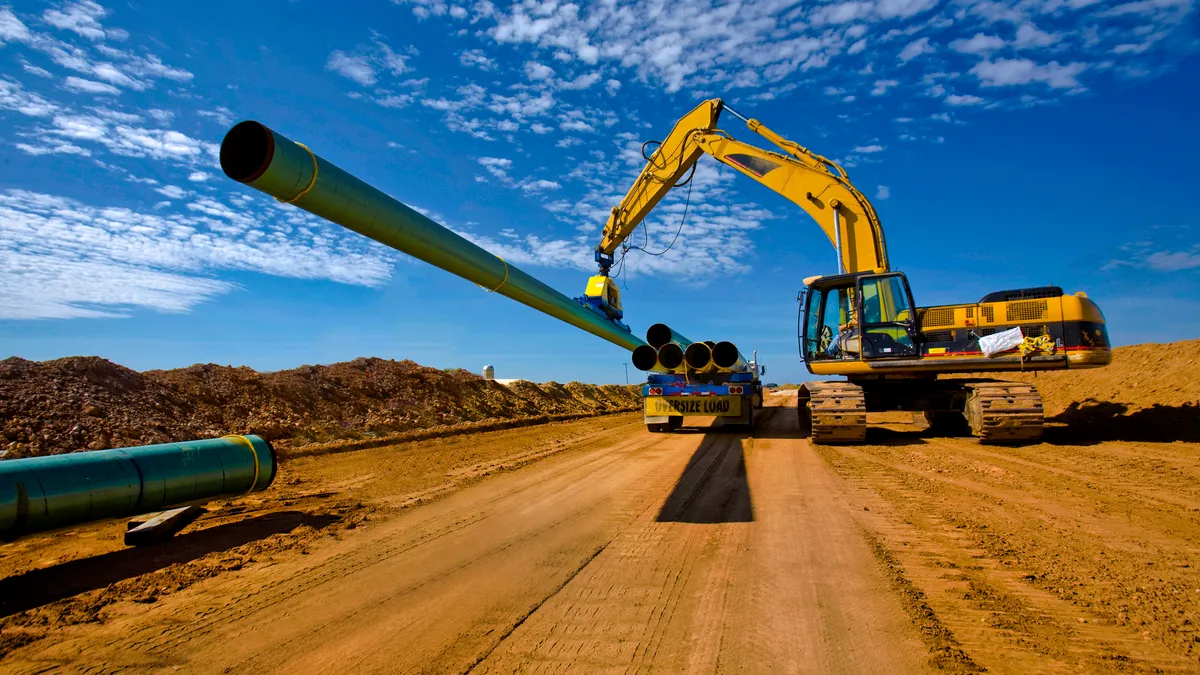Dive Brief:
-
California, Oregon and Washington attorneys general on Monday urged the Federal Energy Regulatory Commission to reject a TC Energy subsidiary’s $335 million proposed GTN Xpress natural gas pipeline expansion project, saying it conflicts with state carbon emissions reduction laws.
-
Also, there is no public need for the pipeline expansion project, even though two gas utilities and a gas marketer have signed contracts for capacity from the project, the attorneys general said in their joint filing.
-
“State policies will significantly reduce regional demand for methane, so increasing fixed costs for methane infrastructure will harm consumers in the long term,” the attorneys general said.
Dive Insight:
The debate over the pipeline expansion project comes as utility regulators in states like Massachusetts consider the future of their natural gas systems amid broad efforts to slash greenhouse gas emissions. Also, local governments have been imposing limits on new gas hookups.
The GTN Xpress project calls for upgrading existing compressor stations to increase the TC Energy pipeline by 250,000 dekatherms per day. Cascade Natural Gas, Intermountain Gas Co. and Tourmaline Oil Marketing Corp. have agreed to buy 150,000 Dth/d on the expanded pipeline under contracts that run 30 to 33 years, the AGs noted.
“The project conflicts with state laws to reduce emissions and transition to renewable energy, and it will worsen environmental harms from climate change by locking in over 3.47 million metric tons of carbon dioxide equivalent (CO2e) emissions per year for at least the next thirty years,” the AGs said.
Also, the project would impermissibly be subsidized by existing pipeline customers, a sign the project isn’t needed, the AGs said.
California, Oregon and Washington are shifting away from natural gas, which is mainly made of methane, a move that will free up gas for other uses, such as in homes and businesses, according to the AGs.
Further, the three states have taken steps to reduce gas use outside the power sector, the AGs said.
“In light of the climate crisis, the commission should not approve expanded gas supplies that do not meet a significant public need and will worsen the effects of climate change, particularly where alternative energy sources can serve consumer need for energy more efficiently, cheaply, and with fewer environmental risks,” the AGs said.
Separately, the AGs said a draft environmental impact statement issued by FERC staff was flawed, partly because it failed to adequately consider alternatives to the project.
In asking FERC to reject the project, the Columbia River Inter-Tribal Fish Commission, which represents four native tribes, said there is no evidence the project is needed, yet it may have “significant and irreversible effects on the region.”
FERC staff didn’t adequately assess the project’s effect on the climate, the Environmental Protection Agency said in comments filed Thursday.















